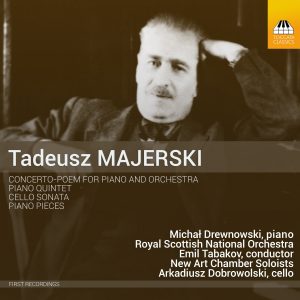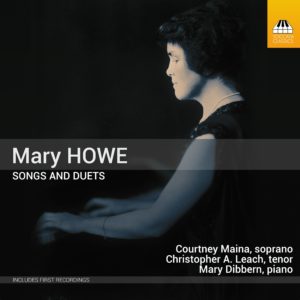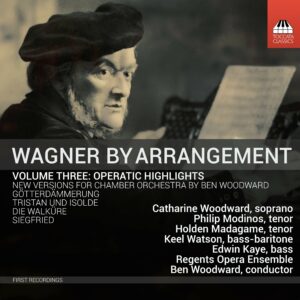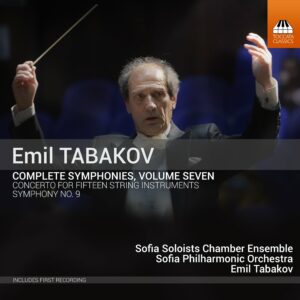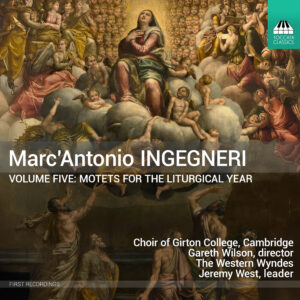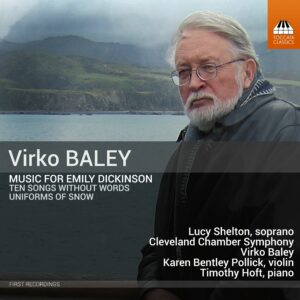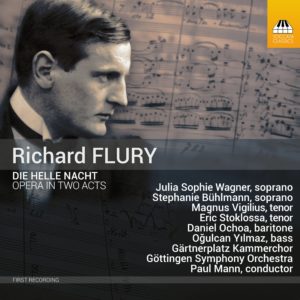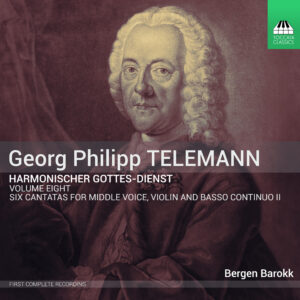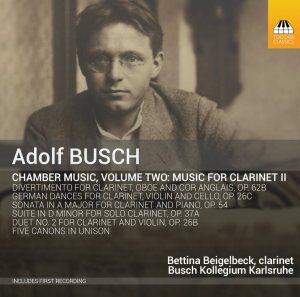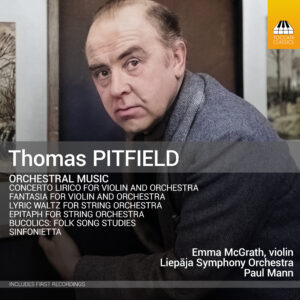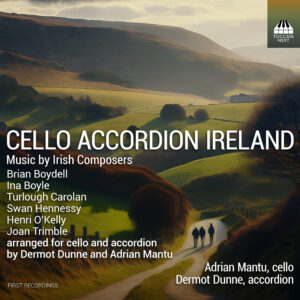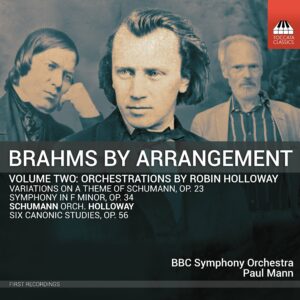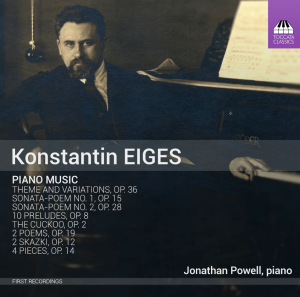Search Results for "Space Wolf: The First Omnibus mp3 torrent" – Page 8
Tadeusz Majerski: Concerto-Poem and Other Works
The Polish pianist-composer Tadeusz Majerski (1888–1963), who spent his life in Lwów (now Lviv in Ukraine), has been entirely lost from sight. But he wrote some of the most interesting Polish music of his day, bringing together late-Romantic sensitivity and the modern outlook of the new age. This first album dedicated to his work presents one of his major scores, the rhapsodic Concerto-Poem for piano and orchestra, as well as two powerful chamber works and a number of representative piano miniatures.
Michał Drewnowski, piano
Royal Scottish National Orchestra (Track 1)
Emil Tabakov, conductor (Track 1)
New Art Chamber Soloists (Tracks 2–11)
Arkadiusz Dobrowolski, cello (Tracks 12-13)
Mary Howe: Songs and Duets
The name of Mary Howe (1882–1964) seems to have vanished from the history books. But she was an important voice in American music in the first half of the twentieth century, as an activist and organiser, as a concert pianist and, especially, as a composer. This pioneering album of her songs shows her late-Romantic style open to influences from Debussy, Mahler, Richard Strauss and other contemporaries: she was, she said, ‘alert for new sensations, like a Puritan on a holiday’.
Courtney Maina, soprano (tracks 1,2, 4, 10-13, 15, 16, 19, 20, 22)
Christopher A. Leach, tenor (tracks 1, 3, 5-10, 13, 17, 18, 21, 22)
Mary Dibbern, piano
William Beaton Moonie: Chamber and Instrumental Music, Vol. One: Music for Solo Piano
The music of the Edinburgh composer William Beaton Moonie (1883–1961) is as good as unknown. This first-ever album devoted to his piano music reveals a figure downstream from Schumann, Brahms and Grieg, writing in a conservative Romantic idiom coloured by echoes of the folk-music of his native Scotland. Many of these pieces, indeed, are concerned to evoke images of the Scottish countryside or suggest aspects of Scottish history.
Christopher Guild, piano
Wagner by Arrangement: Volume Three, Operatic Highlights
Necessity being the mother of invention, the English conductor Ben Woodward has arranged the full-symphonic textures of some of Wagner’s operas for eighteen-part chamber orchestra to bring them within range of the forces available to Regents Opera in London – arrangements which should, indeed, put them with the reach of smaller companies everywhere. This new ‘room-sized Wagner’ enhances the sense of scale of the originals with a striking degree of clarity.
Catharine Woodward, soprano: Brünnhilde (Tracks 1,3,4), Isolde (Track 5)
Keel Watson, bass-baritone: Wotan (Track 1)
Philip Modinos, tenor: Siegfried (Tracks 2,3)
Holden Madagame, tenor: Mime (Track 2)
Edwin Kaye, bass: Hagen (Track 4)
Regents Opera Ensemble
Ben Woodward, conductor
Emil Tabakov: Complete Symphonies, Volume Seven
The music of the Bulgarian composer-conductor Emil Tabakov (b. 1947) explores the darker side of the human spirit in monumental scores as austere as they are powerful. Like many of his earlier symphonies, the Ninth, nearly an hour in length, is conceived on a massive scale. The opening Adagio forms an epic, glacial prelude to the driving Presto second movement. Two further slow movements follow: a Largo, which offers an island of relief after the tumult of the scherzo, and a finale which, after opening with an extensive Largo of its own, is transformed into a wild, driving, violent Allegro moderato. The symphony is prefaced by a virtuoso study for string ensemble written over 30 years earlier and remarkable for its contrapuntal fireworks and its explosive, almost elemental energy.
Sofia Soloists Chamber Ensemble (Tracks 1–3)
Sofia Philharmonic Orchestra (Tracks 4–7)
Emil Tabakov, conductor
George Enescu: The Unknown Enescu, Volume Two
Although Enescu gave opus numbers to only 33 of his works, he left an enormous number of pieces in varying stages of composition, from sketches and draft outlines to isolated movements and some scores that are almost complete. Working with a handful of composers and musicologists – fellow Romanians with specialist knowledge of Enescu’s style – the violinist Sherban Lupu has produced performing editions of a number of previously unknown works, heard here in the context of other Enescu rarities. One of these ‘rescued’ pieces, hiding behind the modest title of Caprice Roumain, is nothing less than a major violin concerto.
Sherban Lupu, violin
Ian Hobson, piano (Track 1), conductor (Tracks 8–11)
Viorela Ciucur, piano (Tracks 3–7)
Sinfonia da Camera (Tracks 8–11)
Herman Galynin: Piano Music, Volume One
The Russian composer Herman Galynin (1922-66) studied at the Moscow Conservatory with Shostakovich and Myaskovsky, producing a flow of brilliant compositions while still a student. They fuse influences from his teachers — Shostakovich's wit and irony and Myaskovsky's lyrical introspection — with Prokofiev's rhythmic energy to produce a language very much his own. Although he was dogged by ill fortune (he was an orphan) and ill health, Galynin's music expresses a defiant will to live with verve and humour.
Olga Solovieva, piano
Marc’Antonio Ingegneri, Volume Five: Motets for the Liturgical Year
The Choir of Girton College, Cambridge, continues its pioneering exploration of the music of the Italian Renaissance master Marc’Antonio Ingegneri (c. 1535/36–92) with a journey through the liturgical year, as mirrored in Ingegneri’s motets. A ‘concept album’ of Renaissance polyphony may be an unusual undertaking, but this one illustrates how Ingegneri took his lead from the emotions implicit in each major celebration of the church – from sorrow and awe to joy and jubilation – expressed in music of extraordinary beauty, belying the internal complexity that gives it its emotional power.
Choir of Girton College, Cambridge
Gareth Wilson, director
The Western Wyndes
Jeremy West, leader
Virko Baley: Music for Emily Dickinson
Winner of the 2024 American Prize Ernst Bacon Memorial Award for the Performance of American Music, 2024
Virko Baley was born in Ukraine in 1938 and came to the USA as a refugee in 1949, eventually making his home in Las Vegas. He has long been fascinated by the poetry of Emily Dickinson, as can be heard in the two moving works recorded here – one an orchestral song-cycle setting her texts, the other a suite for violin and piano inspired by those settings. They display an acute ear for orchestral colour, a fondness for dramatic gesture and a strong sense of lyricism, occasionally inflected by distant echoes of Baley’s eastern European origins, the richness of the song-cycle placing him downstream from Mahler and Berg and the restraint of the Songs without Words occasionally evoking Arvo Pärt.
Lucy Shelton, soprano
Cleveland Chamber Symphony
Virko Baley, conductor
Karen Bentley Pollick, violin
Timothy Hoft, piano
Richard Flury: Die helle Nacht, Opera in Two Acts
Die helle Nacht (‘The Bright Night‘), the second opera by the Swiss composer Richard Flury (1896–1967), enjoyed only a single radio broadcast in 1935, the year of its completion, and then remained unheard until this recording. It is revealed as a passionate mixture of sexual jealousy, obsession and murderous revenge, until love and reason ultimately prevail. Flury responded with some of his most ardent music, poised between the late Romanticism of Richard Strauss and occasional more modernist touches that reveal an admiration for Alban Berg – with a further link to Vienna in Flury’s fondness for waltz rhythms.
Julia Sophie Wagner, soprano
Stephanie Bühlmann, soprano
Magnus Vigilius, tenor
Eric Stoklossa, tenor
Daniel Ochoa, baritone
Oğulcan Yılmaz, bass
Gärtnerplatz Kammerchor
Göttingen Symphony Orchestra
Paul Mann, conductor
Telemann: Harmonischer Gottes-Dienst, Volume 8
This is the eighth album in the first complete recording of the 72 cantatas in Georg Philipp Telemann’s collection Harmonischer Gottes-Dienst, published in Hamburg in 1726 – the first complete set of cantatas for the liturgical year to appear in print. The cantatas are designated for voice, an obbligato instrument (recorder, transverse flute, oboe or violin) and basso continuo, and generally take the form of two da capo arias with an intervening recitative. Although intended for worship, both public and private, Telemann’s cantatas are a masterly blend of tunefulness with skilled counterpoint and vocal and instrumental virtuosity.
Bergen Barokk
Adolf Busch: Chamber Music, Volume Two: Music for Clarinet II
Adolf Busch (1891–1952) enjoys a reputation as one of the greatest of all violinists: his recordings of Beethoven with the Busch Quartet have never been surpassed. But Busch was also one of the major composers of his day, equally natural as contrapuntist and melodist, with a style that owed much to his boyhood idol, Max Reger. Yet, always a man of principle, he sacrificed his career as both violinist and composer with his dignified refusal to perform or be performed in Nazi Germany. This second CD of his lyrical writing for clarinet, one in a series of recordings of Busch’s light-filled chamber music, is part of the rediscovery of one of the leading musicians of his day.
Bettina Beigelbeck, clarinet; Busch Kollegium Karlsruhe
Thomas Pitfield: Orchestral Music
Thomas Pitfield (1903–99) was a polymath: artist, bookbinder, cabinet-maker, calligrapher, cartoonist, composer, designer, poet, printmaker and more. He brought to his compositions the same skill and craftsmanship as to his other activities, but during his long lifetime his personal modesty impeded a general awareness of his achievements. Pitfield’s fondness for folk-music sites his music within the broad tradition of English pastoralism established by Vaughan Williams, Finzi, Howells and others – though a touch of steel can occasionally be heard behind the lyricism.
Emma McGrath, violin
Liepāja Symphony Orchestra
Paul Mann, conductor
Cello Accordion Ireland
The sound of the accordion is an underexploited resource in classical music; it is heard even less frequently in combination with other instruments. This recital of music by Irish composers for cello and accordion – from the nimble folk idiom of Turlough Carolan to the passionate Romanticism of more recent men and women – demonstrates just how effectively these colours blend together. And it is not just the medium which is unusual: much of this music is as good as unknown.
Adrian Mantu, cello
Dermot Dunne, accordion
Brahms by Arrangement, Volume Two: Orchestrations by Robin Holloway
Composers who orchestrate the music of earlier colleagues often serve them best when they add something of themselves to the work in hand. These three orchestrations by the English composer Robin Holloway (b. 1943) demonstrate his profound understanding of and affection for two of the most important Romantic composers – and his re-imagining of Brahms’ Sonata for Two Pianos (which Brahms himself recast as his Piano Quintet) as a symphony gives one of the greatest of all compositions a wild and thrilling energy, making it also a masterpiece of our own age.
BBC Symphony Orchestra
Cellerina Park, leader
Paul Mann, conductor
Konstantin Eiges: Piano Music
Konstantin Romanovich Eiges (1875–1950), a member of a gifted Jewish family from eastern Ukraine, studied both in medicine and music in Moscow, but soon became known as an outstanding composer and pianist. His music bears the impress of Taneyev, his teacher, and of Skryabin and has points in common with his friends Medtner and Rachmaninov, but this first recording of his piano music reveals a figure who deserves to be remembered in his own right.
Jonathan Powell, piano
Stay In the Know
JOIN THE TOCCATA NEWSLETTER
"*" indicates required fields
By visiting our site, you agree to our privacy policy regarding cookies, tracking statistics, etc.
